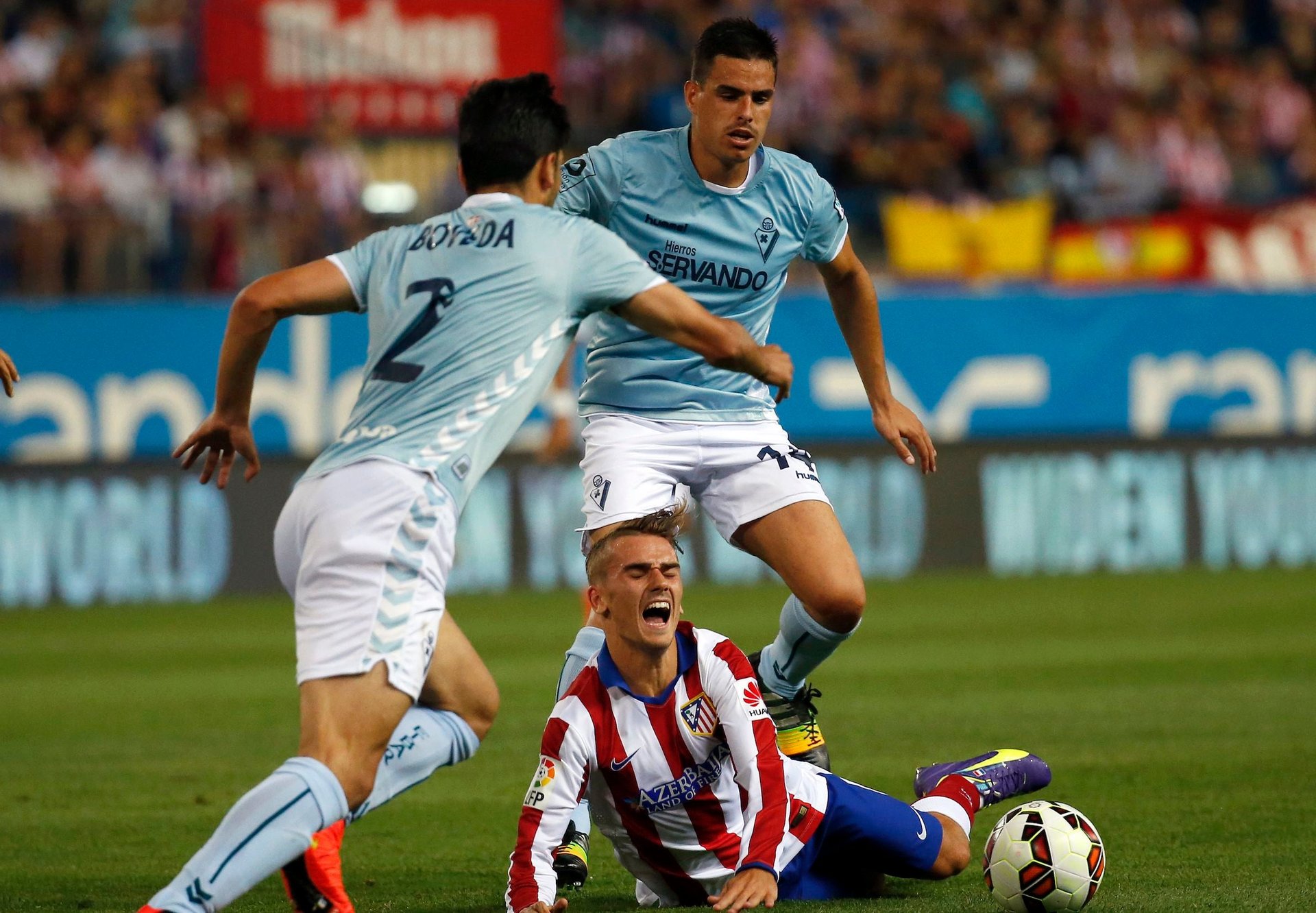Meet the smallest team ever to play in elite European soccer
Barcelona’s soccer team today hosted a match in its legendary stadium, Camp Nou, where the club regularly plays in front of 98,000. Barcelona has won La Liga 22 times and the European Cup four times. Its opponents were much less renowned, though, in their own way, no less remarkable.


Barcelona’s soccer team today hosted a match in its legendary stadium, Camp Nou, where the club regularly plays in front of 98,000. Barcelona has won La Liga 22 times and the European Cup four times. Its opponents were much less renowned, though, in their own way, no less remarkable.
The club from Eibar, a small town in the Basque country, is playing in Spain’s top division for the first time ever. Last year, its budget was €3.2 million ($4.1 million), which wouldn’t cover the annual salary of Lionel Messi, Barcelona’s star player. The team’s stadium holds 5,200 and average attendance last year was 2,900—which makes Eibar the smallest team ever in the history of La Liga. It is quite likely that that it is the smallest team ever to play in any of the top divisions of the major European leagues of England, Spain, Italy, and Germany. For example, in England, you have to go two divisions below teams like Manchester United and Chelsea to get to attendances below Eibar’s.
As The Guardian’s Sid Lowe noted, “you could get the population of Eibar into the Camp Nou and still have room for 71,000 people.” (And soon there will be more room than that, with Barcelona’s plans to expand its stadium into Europe’s first with more than 100,000 capacity.) In the summer, Eibar bought only one player—from the Barcelona B team—for €75,000. The rest are loan signings and free transfers. Barcelona, meanwhile, spent €94 million this year for a single player.
And it showed; Barcelona won 3-0. Yet Eibar, despite having the lowest annual budget in the 80-team second division, made it here. So how did the team manage to get promotion to La Liga and sit at the table with the some of the biggest names in the world?
In a word, crowdfunding.
To play in La Liga, each team needs to meet a certain capital threshold. The requirements for Eibar left the team with a sudden need to raise €1.7 million. Unlike in England, where the incredibly lucrative TV rights are split among all 20 teams, TV rights in Spain are sold separately, and Real Madrid and Barcelona hog nearly half the revenue. Eibar gets less than a measly €10 milion from the rights, and it doesn’t get paid until the middle of the season. So the club—the only one in Spanish professional soccer that has no debt, according to Eibar’s president, Alex Aranzabal—didn’t have the cash in the bank to play in the top flight.
“We tried to fight in court but in the end had to fight to get more money,” Aranzabal told the BBC. If the team couldn’t raise the cash, in a cruel twist, they would have been relegated to play two divisions lower.
The club turned to an equity crowdfunding campaign on the internet, winning support from ex-players who have gone on to bigger things, among other investors. “Fans bought shares; shops became stakeholders,” Lowe wrote. “No one could buy more than €100,000’s worth: they did not want to fall prey to speculators.” A 90-year-old who has been a member since 1945 bought the share that let the team reach its goal. Now all the names of the shareholders are on a wall in the Eibar stadium, primarily featuring locals but—in a sign of how much this plucky team caught the imagination of soccer fans everywhere—also people from more than 50 countries.